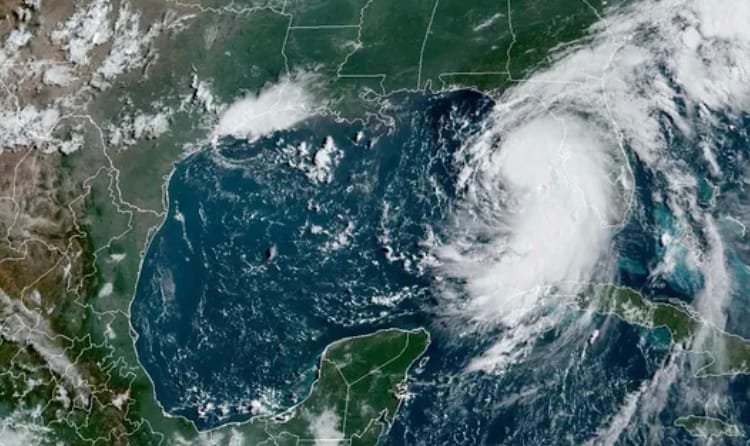Majority of hurricane Debby losses to fall below reinsurance attachments: Moody’s Ratings

Insured losses from hurricane Debby are expected to largely fall within primary insurers’ reinsurance retentions, according to James Eck of Moody’s Ratings.
Hurricane Debby made landfall as a Category 1 storm with 80 mph sustained winds in the Big Bend region of Florida yesterday.
The second hurricane of the Atlantic season, hurricane Debby is not expected to create significant insurance market losses due to its wind impacts, but flooding risks causing a larger economic loss, much of which may go uninsured.
James Eck, VP-Senior Credit Officer, Financial Institutions Group at Moody’s Ratings, commented on the expected impact for insurers.
“We expect a majority of insured losses from Hurricane Debby to fall within primary insurers’ retentions under their reinsurance coverages,” Eck said.
He added, “In general, primary insurers are retaining more risk this hurricane season as attachment points – the threshold at which a policy begins to cover a loss – have moved higher over the past few years, with primary companies taking on more of the loss burden from reinsurers for small to midsize catastrophe events.”
Additionally, Sarah Hartley, Director at Moody’s RMS Event Response, provided some more colour on the impacts from hurricane Debby.
Hartley explained, “Debby is expected to slow down and gradually track into Northern Florida and the Southeast U.S., bringing the potential for excessive rainfall and flooding. Latest forecasts suggest up to 30 inches of rain, particularly in Georgia and South Carolina, which could challenge recent historical precedents in those states.
“Debby’s hurricane-force winds, storm surge, and heavy rainfall could have localized impacts in the Gulf coast region.
“Debby’s forecast winds, rainfall, storm surge and the associated risk of tornadoes highlight the multifaceted nature of hurricane-related risks facing insurance industries.”
Andrew Siffert, Senior Meteorologist at broker BMS Re also highlighted the potential for this to be a retained event, with some losses falling below policyholder deductibles as well.
He highlighted that hurricane Idalia in 2023, a much more intense storm, came through the same landfall region of Florida with considerably stronger winds than Debby, so properties would be expected to have been repaired since then where damage had occurred at that time.
Siffert said, “Overall, the wind impacts from Debby are expected to be manageable for the insurance industry, as any significant damage would have likely occurred during Idalia due to its greater intensity. And if a building was damaged, let us hope it was rebuilt better.
“Any new damage would likely be subject to high deductibles, a retained loss for many policyholders, and clearly not a reinsurance event for the overall insurance industry.”
As ever, there is the chance that some losses fall to reinsurance capital providers via quota share arrangements, but even these would be expected to be very manageable after hurricane Debby’s initial landfall wind and surge impacts.
As we reported yesterday, two catastrophe bond fund managers, Icosa Investments and Plenum Investments, said that the catastrophe bond market is not anticipated to be significantly affected, if at all, by hurricane Debby’s insured losses.
Also read:
– Hurricane Debby not expected to trouble catastrophe bond market: Icosa.
– No impact to our cat bond funds expected from hurricane Debby: Plenum.






